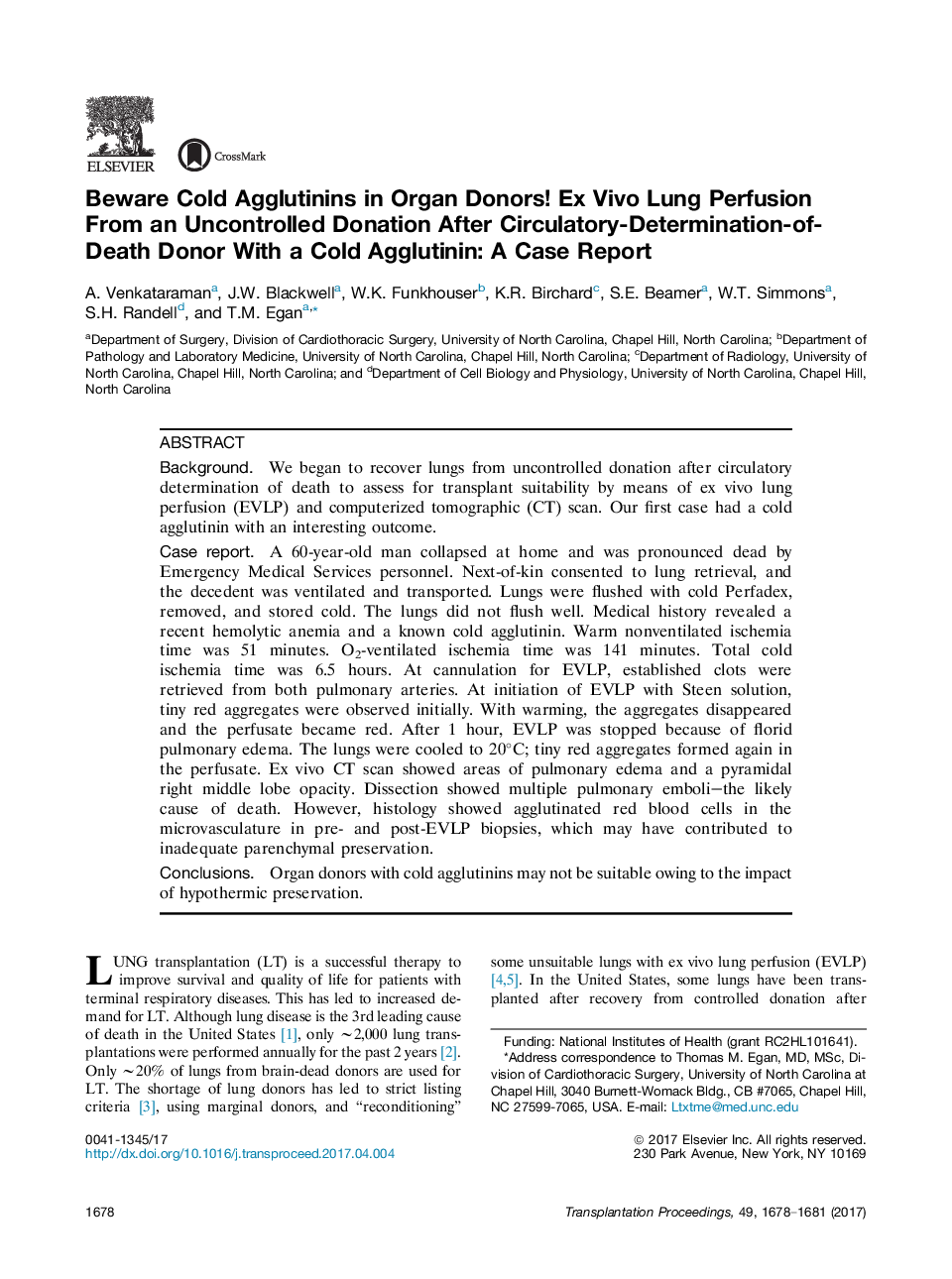| Article ID | Journal | Published Year | Pages | File Type |
|---|---|---|---|---|
| 5728761 | Transplantation Proceedings | 2017 | 4 Pages |
â¢Lungs were retrieved for transplant from a man with a known cold agglutinin.â¢He was an uncontrolled donation after circulatory determination of death donor.â¢Lungs from this uDCDD were assessed by means of normothermic ex vivo lung perfusion.â¢The cold agglutinin prevented adequate parenchymal preservation.â¢Organ donors with cold agglutinins may not be suitable for cooling and transplantation.
BackgroundWe began to recover lungs from uncontrolled donation after circulatory determination of death to assess for transplant suitability by means of ex vivo lung perfusion (EVLP) and computerized tomographic (CT) scan. Our first case had a cold agglutinin with an interesting outcome.Case reportA 60-year-old man collapsed at home and was pronounced dead by Emergency Medical Services personnel. Next-of-kin consented to lung retrieval, and the decedent was ventilated and transported. Lungs were flushed with cold Perfadex, removed, and stored cold. The lungs did not flush well. Medical history revealed a recent hemolytic anemia and a known cold agglutinin. Warm nonventilated ischemia time was 51 minutes. O2-ventilated ischemia time was 141 minutes. Total cold ischemia time was 6.5 hours. At cannulation for EVLP, established clots were retrieved from both pulmonary arteries. At initiation of EVLP with Steen solution, tiny red aggregates were observed initially. With warming, the aggregates disappeared and the perfusate became red. After 1 hour, EVLP was stopped because of florid pulmonary edema. The lungs were cooled to 20°C; tiny red aggregates formed again in the perfusate. Ex vivo CT scan showed areas of pulmonary edema and a pyramidal right middle lobe opacity. Dissection showed multiple pulmonary emboli-the likely cause of death. However, histology showed agglutinated red blood cells in the microvasculature in pre- and post-EVLP biopsies, which may have contributed to inadequate parenchymal preservation.ConclusionsOrgan donors with cold agglutinins may not be suitable owing to the impact of hypothermic preservation.
